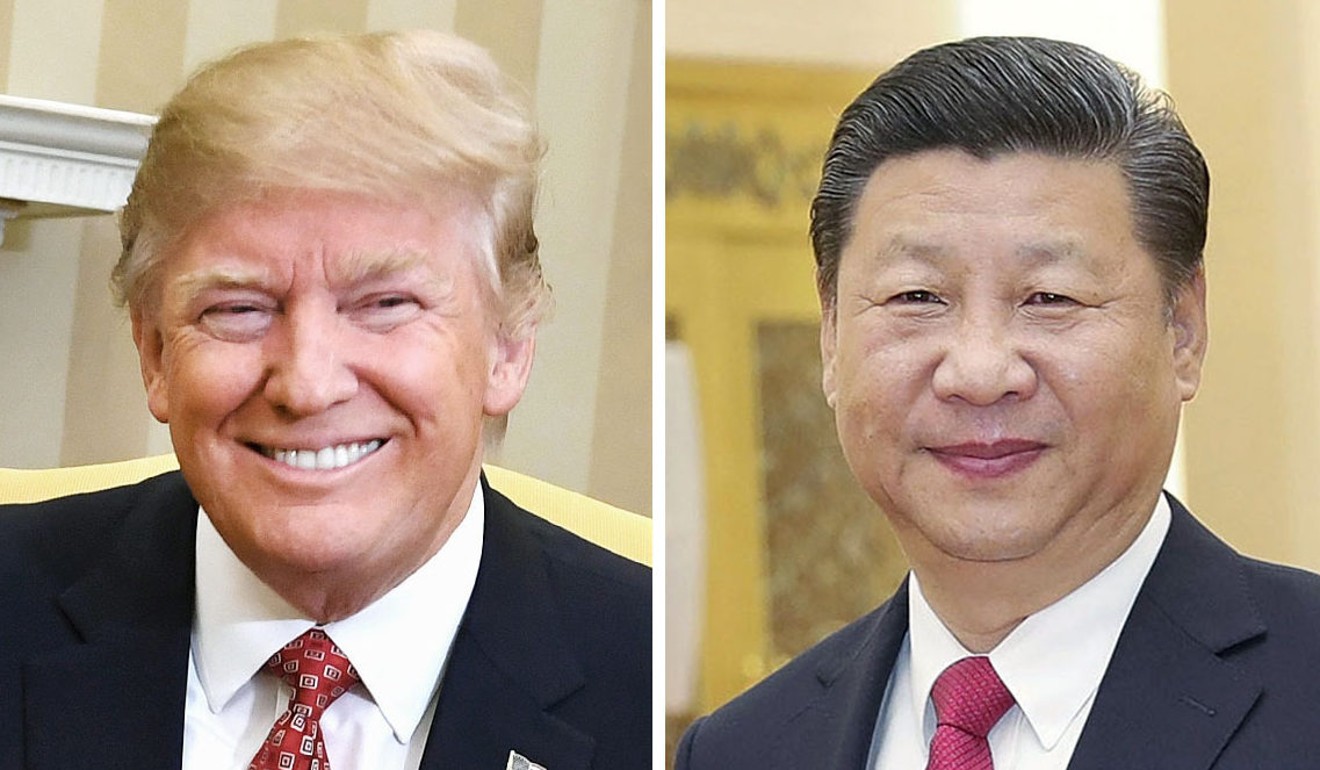
How will Donald Trump’s Beijing visit shape US strategy on China?
US president’s first state visit to China will ‘drive the whole process’ of refining a China policy, ex-US National Security Council official told the Post
US President Donald Trump’s visit to Beijing next week will shape an ongoing White House review of China policy that will be used to formulate a coherent strategy for dealing with the world’s second-largest economy, analysts said.
Trump’s demands and takeaways from his first state visit to China will “drive the whole process” of refining a China policy, Michael Green, a former senior director at the US National Security Council, told the South China Morning Post.
“Whatever policy reviews [are] underway, they will throw them out and start over, or revisit them based on the [Trump’s] trip,” Green said. He is now a senior vice-president for Asia and Japan chair at the Washington-based Centre for Strategic and International Studies.
The White House has been quietly conducting an overall China policy review across US government entities since June. The review stems from a concern that the Trump administration lacks a coherent China approach. The administration mainly has focused on economic issues, including China’s alleged intellectual property theft, technology transfer requirement for joint ventures and trade tactics, Politico reported.

“I know the administration is really focusing on those specific areas that are very pragmatic,” Green said. He said he doubted the White House has formulated a China strategy yet.
Since Trump took power, the US has been pursuing a results-oriented approach aimed at getting China to make concessions that would reduce the bilateral trade deficit, increase American exports and gain more market access for US companies.
A senior US administration official said on Tuesday during a White House press briefing that the president’s visit would send “a clear message” that China must provide “fair and reciprocal” treatment to US firms and cease “predatory” trade and investment practices.
Douglas Paal, vice-president for studies at the Carnegie Endowment for International Peace in Washington, also told the Post in an email that the review process so far appears “disappointing and inadequately comprehensive”.
Paal said early indications are that the administration’s policy is based on “an incoherent approach” that tries to fight change rather than grab it and steer it towards a higher set of objectives.
“We are in a period of major power upheaval and the conceptual approach needs to be comprehensive and adaptive, not rigid and negative,” Paal said. “And it needs to tie American foreign policy objectives to American domestic realities more closely.”
Bradford Jensen, a professor of economics and international business at the McDonough School of Business at Georgetown University in Washington, said Trump’s China trade policy is coherent.
Trade is “the one thing that Trump has been most consistent on”, Jensen told a Georgetown University event last week. Trump is trying to “leverage the US side to get a better deal”.

